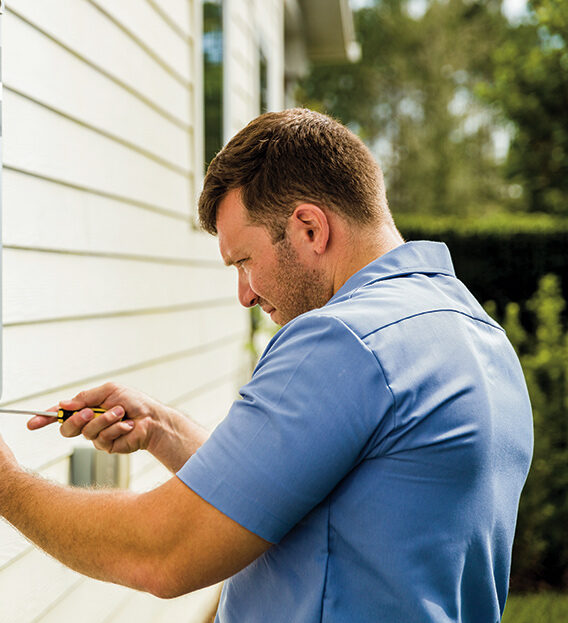
Introduction to Tankless Water Heaters
Tankless water heaters, also known as on-demand water heaters, are innovative appliances designed to provide hot water whenever you need it, without the need for a storage tank. These modern marvels offer numerous advantages over traditional water heaters, making them an appealing option for homeowners looking to upgrade their hot water systems. Let’s take a closer look at tankless water heaters and the benefits they offer over here.
Factors to Consider When Choosing a Tankless Water Heater
Sizing and Capacity
Choosing the right size tankless water heater for your home is essential to ensure an adequate supply of hot water. Factors such as household size, number of bathrooms, and simultaneous water usage determine the appropriate capacity. Understanding flow rate and temperature rise helps homeowners select a unit that can meet peak demand scenarios, providing sufficient hot water when needed most.
Fuel Type and Energy Efficiency
Tankless water heaters are available in electric and gas models, each offering unique benefits. Electric units are often more energy-efficient and easier to install but may have higher operating costs. Gas-powered units, on the other hand, provide higher flow rates and are suitable for larger households with higher hot water demands. Evaluating energy efficiency ratings and calculating potential energy savings helps homeowners make informed decisions based on their specific needs and preferences.
Installation Requirements and Cost
Before investing in a tankless water heater, homeowners should consider installation requirements and associated costs. Assessing installation space, ventilation needs, and electrical or gas line requirements is crucial for determining feasibility. While tankless water heaters generally have a higher upfront cost compared to traditional units, potential energy savings and longevity may offset initial expenses over time. Consulting with a professional installer can provide valuable insight into installation complexity and cost estimates.
Benefits of Tankless Water Heaters
Endless Hot Water Supply
One of the primary benefits of tankless water heaters is their ability to provide endless hot water on-demand. Unlike traditional water heaters with limited storage capacity, tankless units heat water as it passes through the system, ensuring a continuous supply of hot water whenever needed. This feature is particularly advantageous for large families or households with high hot water demands, allowing multiple users to shower, wash dishes, and do laundry simultaneously without running out of hot water.
Space-Saving Design
Tankless water heaters feature a compact and wall-mountable design, saving valuable space in utility rooms, closets, or other confined areas. By eliminating the need for a bulky storage tank, tankless units maximize floor space and offer greater flexibility in installation options. This space-saving design makes tankless water heaters ideal for small homes, apartments, or condos where space is limited.
Energy Efficiency and Cost Savings
Tankless water heaters are renowned for their energy efficiency and potential cost savings compared to traditional storage tank models. By heating water only when needed, tankless units reduce standby heat loss and minimize energy consumption, leading to lower utility bills over time. Additionally, many tankless water heaters qualify for rebates and incentives from utility companies or government programs, further reducing upfront costs and increasing long-term savings potential.
Maintenance and Care Tips for Tankless Water Heaters
Flushing the System Regularly
To maintain optimal performance and efficiency, homeowners should flush their tankless water heaters regularly to remove mineral build-up and sediment that can accumulate over time. Flushing the system helps preserve heater efficiency and extend its lifespan, ensuring reliable hot water delivery throughout the year. Scheduling annual maintenance with a professional plumber is recommended to address any potential issues and keep the system running smoothly.
Checking for Leaks and Inspecting Components
Regularly checking for leaks and inspecting key components of the tankless water heater is essential for preventing water damage and ensuring safety. Homeowners should monitor for signs of water leaks or damage, such as dampness or discoloration around the unit, and promptly address any issues that arise. Additionally, inspecting ventilation and exhaust systems helps ensure proper operation and prevents the risk of carbon monoxide leaks or other safety hazards.
Protecting Against Freezing Temperatures
In regions where temperatures drop below freezing, homeowners must take precautions to protect their tankless water heaters from potential damage. Winterizing outdoor units and installing freeze protection kits can help prevent frozen pipes and ensure uninterrupted hot water supply during cold weather. Taking proactive measures to safeguard the system against freezing temperatures helps prolong its lifespan and minimize the risk of costly repairs.
Conclusion: Making the Switch to a Tankless Water Heater
In conclusion, tankless water heaters offer numerous benefits for homeowners seeking efficient and reliable hot water solutions. By understanding the factors to consider when choosing a tankless unit, such as sizing, fuel type, and installation requirements, homeowners can make informed decisions that meet their specific needs and preferences. With endless hot water supply, space-saving design, energy efficiency, and potential cost savings, tankless water heaters are highly recommended for modern homes looking to upgrade their hot water systems. Check it out and explore the possibilities of installing a tankless water heater to enhance comfort and convenience in your home.


